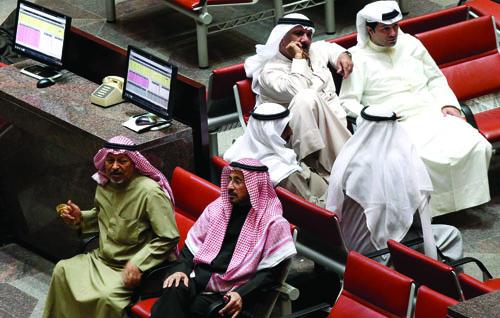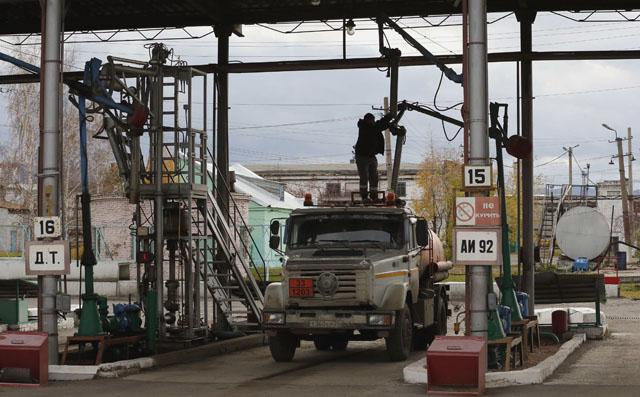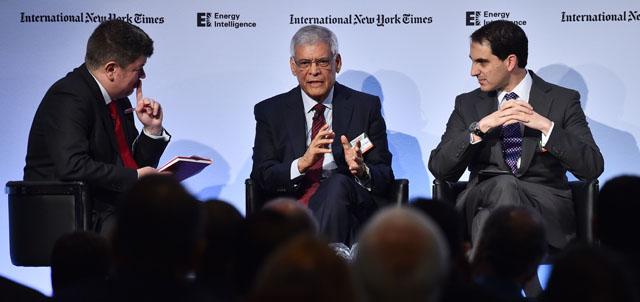You are here
Despite pain, OPEC hawks come round to merits of riding out oil slump
Dec 17,2014 - Last updated at Dec 17,2014

LONDON — Members of the Organisation of Petroleum Exporting Countries (OPEC) which backed an output cut at the group's meeting last month are coming around to the view of Saudi Arabia that they need to focus on market share, further reducing the chance of any action to defend prices.
While Venezuela, which campaigned for output cuts in the run-up to the November 27 meeting, has continued to call for measures to prop up prices, other nations which usually back such action such as Iran and African members have been silent.
"The producers have not blinked. We are just watching and selling oil at whatever the price is," said a delegate from an OPEC country which in November had wanted an output cut.
This means there is greater unity behind the view of OPEC's core Gulf producers, which signalled this week they are prepared to wait as long as a year to see the market stabilise, despite a plunge in prices to below $60 a barrel, the lowest since 2009.
Oil's fall from this year's peak of $115 a barrel in June is particularly painful for countries such as Venezuela, Algeria and Iran, which need prices above $100 to balance their budgets, according to estimates by the International Monetary Fund (IMF) and other analysts.
OPEC was expected to address the problem in November by trimming production, but Gulf producers led by Saudi Arabia blocked calls from poorer members to reduce supplies, arguing the group needed to fight for market share.
A delegate from a second OPEC country which had backed a supply cut said any action to support prices would need to include non-OPEC Russia, which so far has shown no sign of backing down on its refusal to cut output.
"Despite the pain, we agree OPEC can't cut alone," the delegate said.
The first delegate said there was no need for OPEC to meet before its next scheduled gathering in June, as its most recent decision needed time to lead to a slowdown in competing supplies such as shale oil.
"The producers are trying to put the brakes on shale oil and that is going to happen sooner or later, and they are also stimulating the economy, and higher oil demand. That is going to continue," he indicated.
On Tuesday, the Kuwaiti oil minister said OPEC has no plans to intervene in the oil market to shore up sagging crude prices.
"At OPEC's meeting in November, we took two decisions," Ali Al Omair said at a lecture in Kuwait City. "The first was to keep the production ceiling unchanged and the second to hold the next meeting in June. So far, nothing has changed and there are no calls for holding an emergency meeting."
He declined to answer a question on what price would force OPEC to step in to bolster the market.
"As of now, there are no plans. We will talk about it when it comes," the minister said in response to a question on whether OPEC would meet if prices drop to $40 a barrel.
The Kuwaiti minister said the current slide in oil prices had "surpassed all forecasts", which initially predicted a slight drop in crude prices.
He noted that excess supplies in global markets had increased from 1.2 million barrels per day (bpd) when OPEC met last month to 1.8 million bpd now.
Oil prices were also under pressure because "many world markets are saturated" with oil.
Earlier on Tuesday, Omair said OPEC should stick by its decision to maintain production levels despite sliding prices.
"There is no need for OPEC to change its decision" taken on November 27, the minister told reporters outside parliament.
"Kuwait believes the decision was correct and we should continue with it," he said, brushing aside calls for OPEC to take action.
The decision was not aimed at triggering "a price war", he added.
The minister hinted that oil prices could slide further.
"Undoubtedly many of the shale oil and sand oil companies are producing at a cost higher than current oil prices," Omair said. "It depends on the capability of these producers to continue pumping at such a low price."
Omair said OPEC pumps around 30 per cent of global supplies and "we cannot reduce this level".
Related Articles
Brent oil prices fell more than $2 a barrel to less than $88 on Monday, its lowest since 2010, after key Middle East producers signalled they would keep output high even if that meant lower prices.
Oil production by members of the Organisation of Petroleum Exporting Countries (OPEC) is unlikely to change much in 2015 and there is no need to panic at the crude price drop, OPEC's secretary general said on Wednesday, adding to indications the exporter group is in no hurry to cut output.
Oil tumbled to six-year lows Tuesday on global oversupply and after Saudi Arabia, kingpin of the Organisation of Petroleum Exporting Countries (OPEC) said the era of $100 crude was over, analysts said.


















